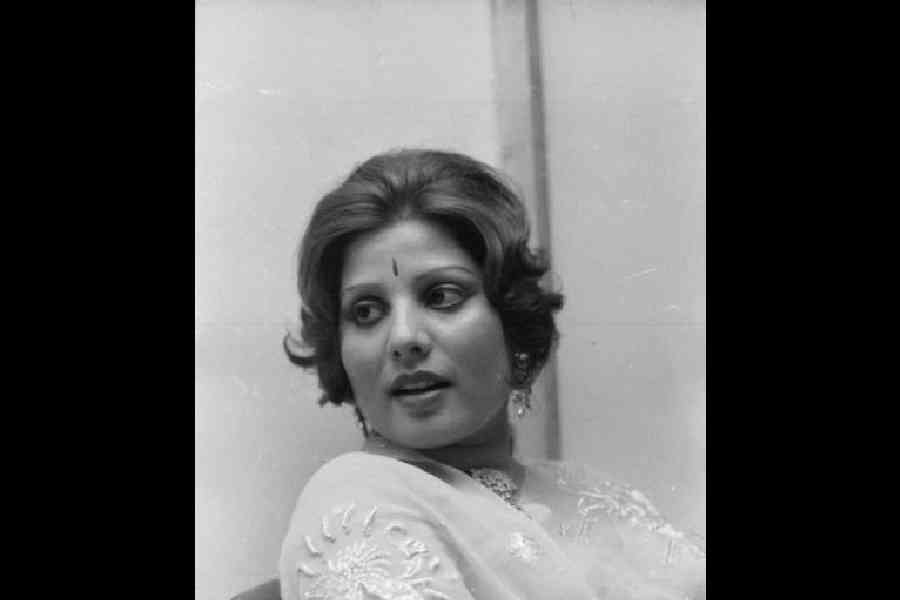Very rarely does a song define a singer’s life. Perhaps Mana teri nazar mein tera pyar hum nahin spoke singer Sulakshana Pandit’s truth in a way lyricist Naqsh Lyallpuri could have never imagined.
Actress-singer Sulakshana died on November 6, aged 71. Eerily, the man she was rumoured to have fallen head over heels in love with, the effortless actor Sanjeev Kumar, died on November 6, 1985. Forty years before, to the day. Sanjeev, who was Sulakshana’s leading man in her debut film as an actress, Uljhan (1975), never returned Sulakshana’s love. The buzz went that he wanted to marry Dream Girl Hema Malini, and was heartbroken when she chose Dharmendra instead.
Sanjeev, who passed away at 47, never married. Like a domino effect, heartbreak begets heartbreak. Sulakshana, who never got over Sanjeev’s rejection, was shell-shocked at his death and became a recluse. She was only 31 then.
Mana teri nazar mein... is Sulakshana’s ghazal from the Esmayeel Shroff film, Ahista Ahista (1981), with music by Khayyam, though she didn’t star in the film that had an ensemble cast of Shammi Kapoor, Nanda, Shashikala, Kunal Kapoor and Padmini Kolhapure. A remake of the 1969 Kannada film Gejje Pooje, Ahista Ahista explores what happens when a courtesan’s educated daughter falls in love with a boy from a good family. Unsurprisingly, there’s no happily ever after.
The film’s most famous track, Kabhi kisi ko muqammal jahan nahin milta, written by Nida Fazli and sung solo by Bhupinder and Asha Bhosle, soon became a cult classic. And except for Mana teri nazar mein..., Asha has sung all the other songs of the film and you could be forgiven for thinking this song is Asha’s too. That’s how gifted Sulakshana was.
Naqsh Lyallpuri writes these searing verses that swerve between a woman’s despair, defiance and scorching pain: Mana teri tazar mein tera pyar hum nahin/ Kaise kahein ke tere talabgaar hum nahin/ Tan ko jalake raakh banaya, bichha diya/ Lo ab tumhari raah mein deewar hum nahin… (I admit I’m not your love, but I’m not claiming you either. See, I’ve burnt myself to ashes and strewn them, I’m no barrier in your path.)
Khayyam, whose delicate composition lets the lyrics own the song, makes full use of Sulakshana’s vocal texture. Daughter of classical vocalist Pratap Narain Pandit and niece of Pandit Jasraj, Sulakshana was a trained classical singer. But she was also made for playback — her honeyed voice could writhe in pain, as it does here.
In the ’90s, Sulakshana’s brothers Jatin and Lalit went on to compose some of the biggest chartbusters of the day — Pehla nasha, Tujhe dekha toh yeh jaana sanam, Koi mil gaya... Sulakshana remained in the shadows, venturing out for only an alap in one of her brothers’ compositions, Sagar kinare bhi do dil hain pyase (Khamoshi: The Musical, 1996). That was it.
Talent, looks, versatility. Sulakshana had it all before she threw it all away. If only she had flipped the script.










